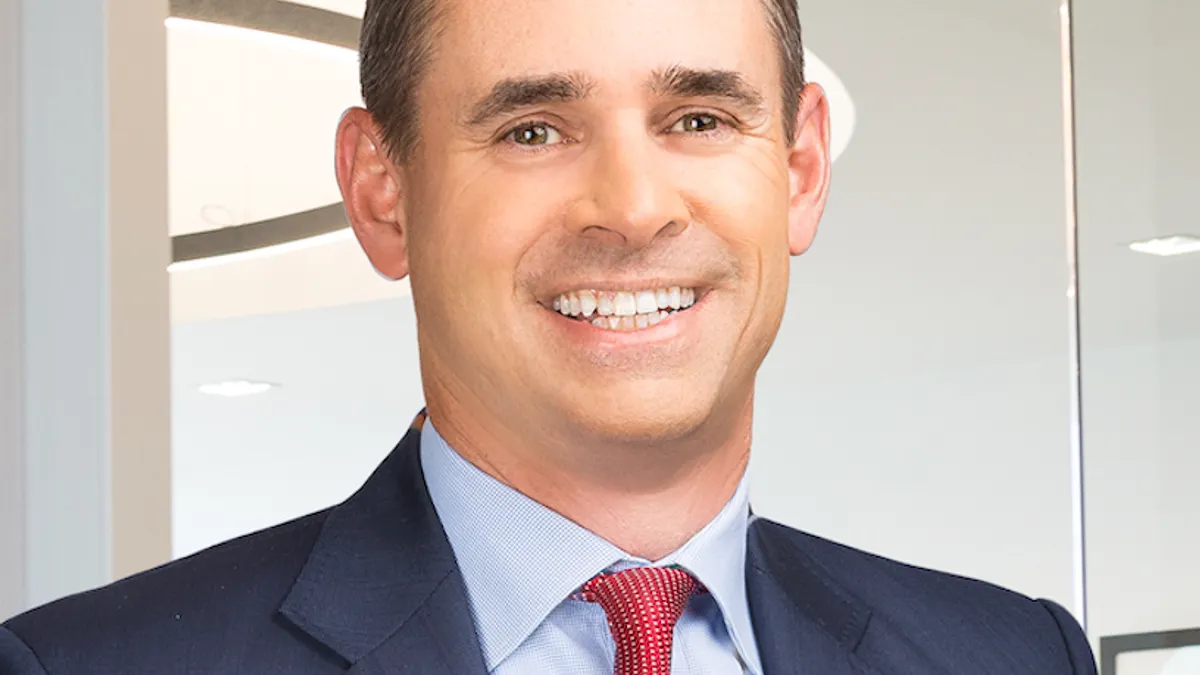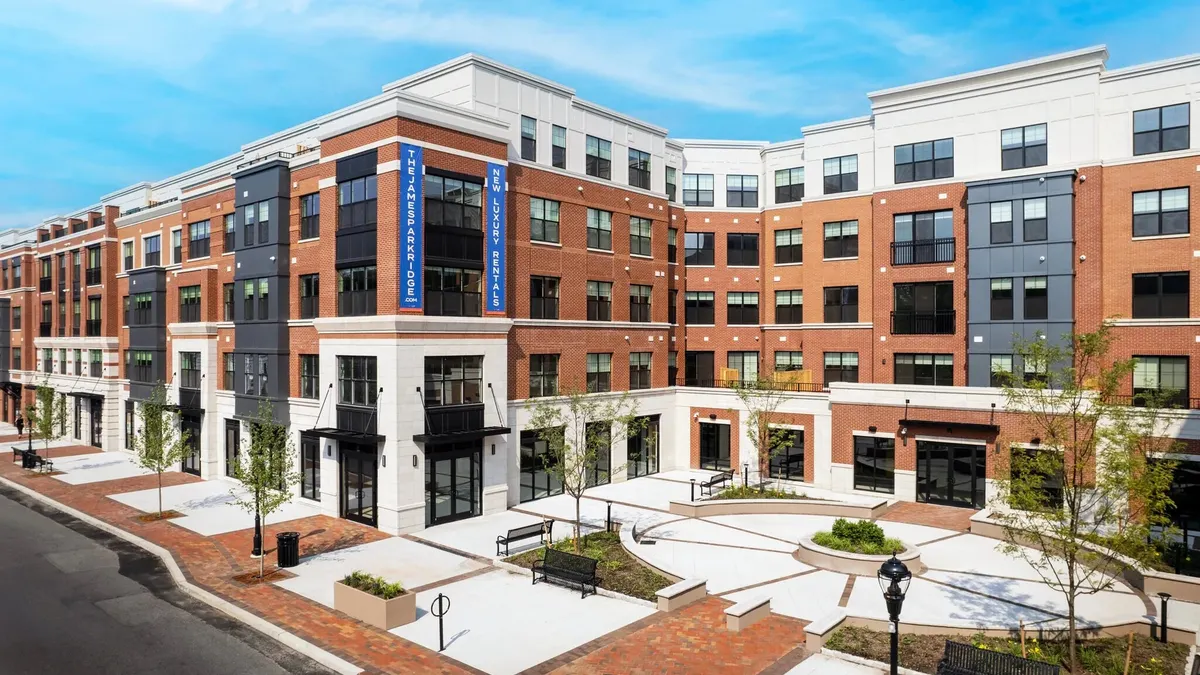Before this year’s volatility in the capital markets, Playa Vista, California-based apartment owner DB Capital CEO Brennen Degner had his pick of lenders for both bridge and permanent financing.
“We would go out to the market and within a week or two weeks, we'd have between five and 10 executable term sheets that were in line or ahead of what we were underwriting because there was just so much demand,” Degner told Multifamily Dive. “There were so many groups putting money out actively trying to get capital into the market.”
But in the last couple of months, there has been a shift. There is still debt available to borrowers, but apartment owners say the number of lenders open for business has declined dramatically. To find financing, they have to accept lower leverage from the agencies or work harder to source bank debt. And, even when they find a lender, the closing process is taking longer.
“The biggest challenge has been honing in on the debt,” Degner said.
A tougher market
After being accustomed to receiving five to 10 term sheets, Degner says the script has flipped almost entirely over the last couple of months.
“We'll go out to the market and we'll struggle to get one or two groups closed in line with underwriting,” Degner said.
Degner isn’t alone. Memphis, Tennessee-based Fogelman Properties approached 29 lenders for a loan at one property. Typically, the company would have had at least soft quotes from the vast majority of them, according to CEO Mark Fogelman. But not this time.

“Less than half even responded and we only had two or three real options — and two of the three are from agencies,” Fogelman told Multifamily Dive.
Fogelman says a lot of the debt sources that have traditionally been active have dropped out of the market, at least temporarily. “We don’t see debt funds, life companies and regional banks being able to compete right now,” he said.
Max Sharkansky, managing partner at Trion Properties — a multifamily investment sponsor and private equity real estate firm based in West Hollywood, California — says the pullback goes beyond debt sources. Other capital providers are also backing off.
“The capital markets are in flux,” Sharkansky told Multifamily Dive. “A lot of people in the lending community are pulling back, tightening their underwriting standards and getting more conservative. The same goes for the equity community, including owners/operators, investors and fund managers. Everyone is just being a little bit more careful — as they should be.”
Finding comfort in familiarity
When banks are lending, they prefer familiarity, especially for construction loans.
“With the changing costs and the interest rate environment, banks are placing more of an emphasis on working with strategic partners and people that they worked with in the past and that can perform,” said William Colgan, managing partner of Bloomfield, New Jersey-based developer CHA Partners. “Most of the banks we have had conversations with are a lot more nervous about working with new developers without a track record or a history of doing business with them before.”

Ed Garahan, CEO of Dallas-based developer Carbon Cos., agrees. “Lenders are essentially doing business with people that they've done business with before,” he told Multifamily Dive. “They're not out looking for a lot of new clients. The deals also need to pencil out.”
While developers may need bank relationships, buyers of stabilized properties can at least rely on the government backstops — Fannie Mae and Freddie Mac. In fact, some of the recent softness in pricing has gotten the agencies back in the game. “Leverage cannot be maximized with the agencies, but A-rated borrowers can get north of 60% leverage with attractive terms,” Fogelman said.
But that low leverage presents other challenges. Karlin Conklin, principal and co-president of Los Angeles-based apartment owner Investors Management Group, said her firm is getting around 55% leverage from the agencies.
“The challenge is trying to get our returns with the leverage so low,” Conklin told Multifamily Dive. “With the agency lenders, I think it's a leverage challenge today more than anything else.”
Click here to sign up to receive multifamily and apartment news like this article in your inbox every weekday.


















